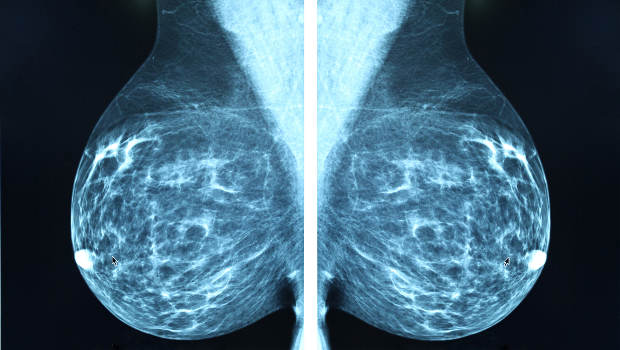Deep machine learning: Can it lead to cancer screening improvements?

A nonprofit, open-science organization offers $1.2 million for advances that increase accuracy
by Diana S.M. Buist, PhD, MPH, Kaiser Permanente Washington Health Research Institute senior investigator and director of Research and Strategic Partnership
One in 10 women who have a mammogram for breast cancer screening get an incorrect result. The error is usually a false positive, which means the mammogram shows something that looks like it might be cancer but isn’t. False positives lead to more clinic visits, tests, and sometimes even cancer treatment that the woman doesn’t need. The problem is that interpreting mammograms is difficult. Radiologists look carefully at mammography images for abnormalities, but potential cancers don’t all look the same.
Computer-aided detection (CAD) software is supposed to help radiologists find signs of breast cancer on mammograms. However, a study that I collaborated on showed that it doesn’t. Our study used data from the Breast Cancer Surveillance Consortium (BCSC), a network funded by the National Institutes of Health to collect breast cancer-related data from all over the United States. The BCSC includes the Kaiser Permanente Washington BCSC registry, which I lead. Now, we are contributing data to an exciting project using a different computer-based approach that could substantially improve breast cancer screening accuracy.
$1.2 million for better breast cancer screening
The Digital Mammography DREAM Challenge is an international contest from Sage Bionetworks, a Seattle-based nonprofit organization that develops open-data systems for biomedical research. The DREAM Community of academic, industry, and government researchers is a partner and support comes from the Laura and John Arnold Foundation.
Our competition is the first Coding4Cancer (C4C) Challenge. It offers $1.2 million to a team that can develop an algorithm and software code that improves our ability to find true cancers on mammograms. Teams working on the challenge are focusing on machine learning, especially the new technique of deep learning. In this method, a computer algorithm improves as it works with real-world data. Kaiser Permanente Washington contributed more than 640,000 digital mammogram images from more than 86,000 women, with all identifying information removed. DREAM Challenge teams are using these data that we provided to “teach” their programs to accurately interpret mammograms.
The details of our progress so far are in a commentary we just published in JAMA Oncology. We believe this international collaboration has great potential for success. We look forward to announcing the results of the challenge later this year.
Learn more about Kaiser Permanente Washington Health Research Institute. Sign up for our free monthly newsletter.


